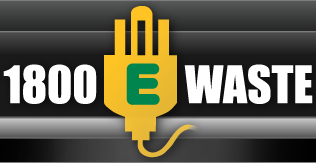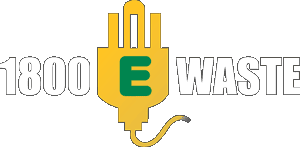The Efficient and Effective Solution with ewaste.com.au
As technology continues to advance at a rapid pace, electronic waste (e-waste) has become a growing concern worldwide. Among the most common e-waste items are old televisions, which often end up in landfills, posing significant environmental and health risks. However, in Australia, a solution has emerged in the form of specialist e-waste recycling companies such as 1800 EWASTE. This article explores how these companies efficiently and effectively recycle old televisions, contributing to a sustainable and cleaner future.
The Challenge of the Disposal of Old Televisions
Old televisions, including cathode ray tube (CRT) sets and flat-panel displays, contain hazardous materials such as lead, mercury, and cadmium. When disposed of improperly, these substances can contaminate soil and water, endangering human health and ecosystems. Additionally, televisions often contain valuable resources like gold, copper, and rare earth metals, which can be reclaimed through recycling. To address these challenges, specialist e-waste recycling companies have emerged, leveraging their expertise to handle old televisions responsibly.
ewaste.com.au: A Leading e-Waste Recycling Specialist
ewaste.com.au is an industry-leading e-waste recycling company operating in Australia. With a strong commitment to environmental sustainability and responsible e-waste management, 1800 EWASTE offers efficient and effective recycling solutions for old televisions. The company’s processes encompass the entire lifecycle of e-waste, from collection and transportation to dismantling, recycling, and resource recovery.
Old TV Collection and Transportation
To ensure a seamless recycling process, 1800 EWASTE operates a comprehensive collection and transportation network throughout Australia. The company collaborates with various stakeholders, including local councils, businesses, and individuals, to establish drop-off points and scheduled collection services. This widespread accessibility enables individuals and organizations to conveniently dispose of their old televisions, reducing the likelihood of improper disposal and promoting responsible recycling practices.
Dismantling and Sorting Televisions
Once collected, old televisions undergo meticulous dismantling and sorting at 1800 EWASTE’s specialized recycling partners facility. Trained technicians carefully disassemble each television, separating different components and identifying hazardous materials. This process ensures that no valuable resources are wasted and that all hazardous substances are handled safely and in compliance with environmental regulations.
Hazardous Material Treatment
One of the critical aspects of 1800 EWASTE’s recycling process is the safe handling and disposal of hazardous materials found in old televisions. The company employs environmentally friendly methods to extract and treat harmful substances like lead, mercury, and cadmium. These materials are contained, processed, and sent to specialized facilities for proper treatment and disposal, preventing their release into the environment and minimizing their impact on human health.
TV Resource Recovery
Beyond the safe disposal of hazardous materials, 1800 EWASTE recognizes the value in recovering resources from old televisions. Through advanced recycling techniques, the company maximizes the extraction of valuable materials like gold, copper, and rare earth metals. These reclaimed resources can then be reused in the production of new electronic devices, reducing the demand for virgin materials and mitigating the environmental impact of mining and extraction processes.
Environmental Compliance and Certification
1800 EWASTE maintains a strong commitment to environmental compliance and sustainability. The company adheres to stringent industry standards and regulations, ensuring that all operations meet or exceed legal requirements. Additionally, 1800 EWASTE partners hold various certifications and accreditations, such as the ISO 14001 Environmental Management System certification. These certifications validate the company’s dedication to responsible e-waste recycling practices and provide customers with confidence in their choice of an environmentally conscious recycling partner.
Benefits of Choosing 1800 EWASTE
By opting for specialist e-waste recycling companies like 1800 EWASTE, several benefits are realized:
- Environmental Protection: Recycling old televisions through a specialized company ensures the safe handling of hazardous materials, preventing pollution and reducing the strain on natural resources.
- Compliance with Regulations: 1800 EWASTE’s adherence to environmental regulations guarantees that the recycling process meets the highest standards and complies with legal requirements.
- Resource Conservation: Through resource recovery, valuable materials are extracted and reused, reducing the need for extensive mining and preserving natural resources.
- Convenience and Accessibility: With a network of collection points and scheduled pickups, 1800 EWASTE offers convenient options for individuals and organizations to dispose of their old televisions responsibly.
- Contributing to a Circular Economy: By choosing a recycling company committed to sustainability, individuals and organizations actively participate in the transition towards a circular economy, where resources are reused, reducing waste and pollution.
Conclusion
Recycling old televisions is a vital step in mitigating the environmental impact of e-waste. Specialist e-waste recycling companies such as 1800 EWASTE play a crucial role in efficiently and effectively managing the recycling process. Through their comprehensive collection and transportation network, meticulous dismantling, safe handling of hazardous materials, resource recovery, and commitment to environmental compliance, these companies provide an optimal solution for recycling old televisions in Australia. By choosing to recycle with ewaste.com.au, individuals and organizations contribute to a cleaner and more sustainable future while minimizing the adverse effects of e-waste on the environment and human health.


